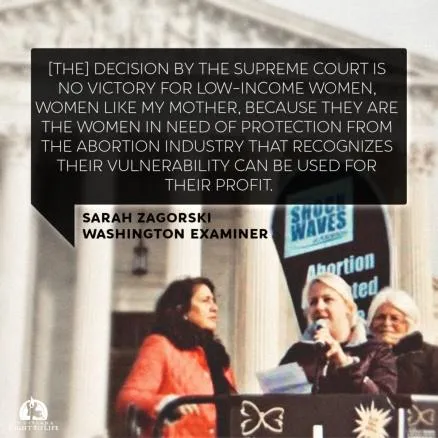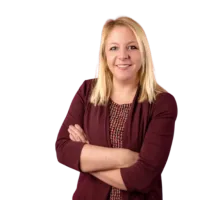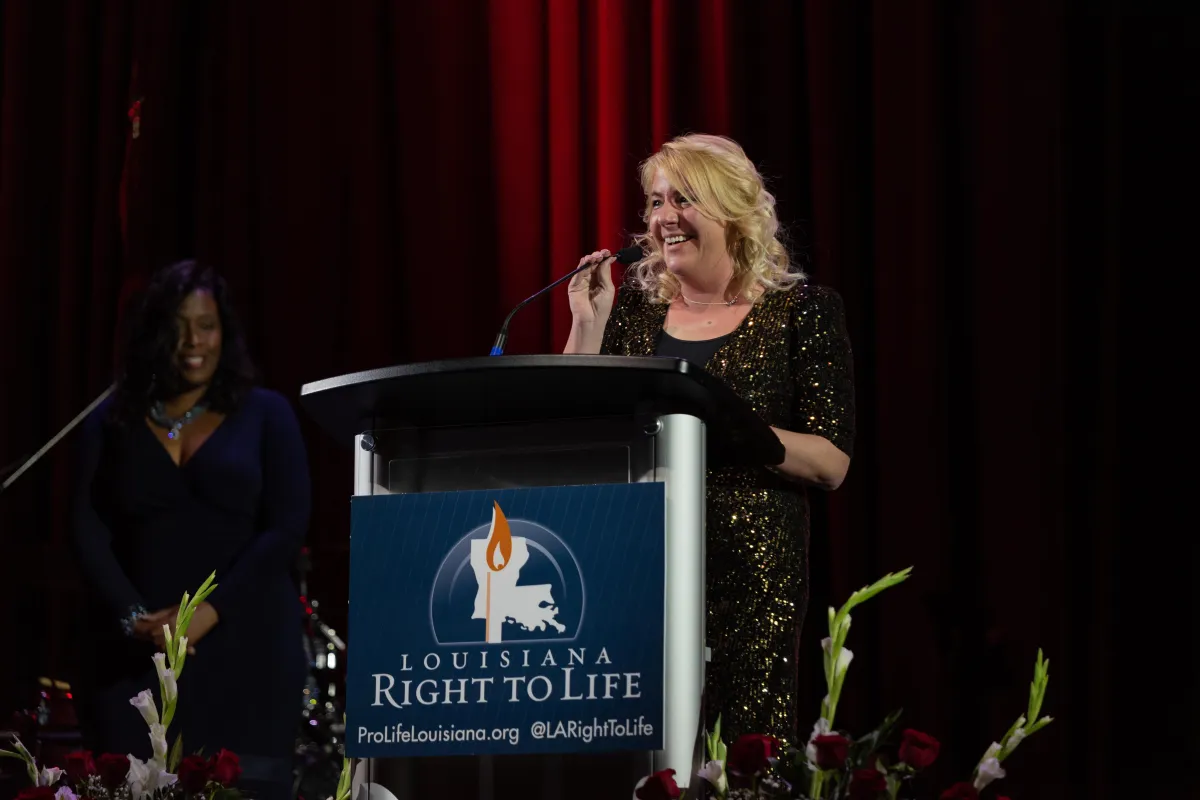Sarah's Blog
Read Sarah’s blog to learn more about her rescue from abortion and foster-care story. Sarah also writes on many pro-life topics including abortion jurisprudence, medical ethics, and more.

Read Sarah in the Washington Examiner
Originally posted in the Washington Examiner on July 3, 2020
This week the U.S. Supreme Court struck down Louisiana’s Act 620, the Unsafe Abortion Protection Act. Chief Justice John Roberts concurred with four others in the majority opinion that the law was unconstitutional because it places an undue burden on a woman’s constitutional right to abortion.
Act 620 simply required doctors who perform abortions to have admitting privileges at a local hospital to ensure women receive continuity of care in the event complications arise.
The concept of "undue burden" was introduced in the 1992 Supreme Court Case Planned Parenthood vs. Casey, whereby the court decided that states could put restrictions on abortion as long as they didn’t become a “substantial obstacle” to a woman’s constitutional right to the procedure.
Ever since, national abortion groups have used this standard to block reasonable abortion regulations. In Louisiana, abortion proponents argued that laws such as Act 620 disproportionately affect low-income women. Poor women don’t have the resources to take off work and travel across state to a qualified practitioner, they argue.
But they cleverly forget to mention that it is precisely low-income women who are the ones disproportionately affected by sloppy abortion physicians because these women are the most vulnerable in crisis. I know this to be true based on my own mother’s experience with abortion.
When I was a young girl, my birth mother, an immigrant from Honduras, explained to me that she sought the help of New Orleans abortion physician Dr. Ifeanyi Okpalobi during her pregnancy with me in 1990. She had been referred to him by a friend because his costs were low. She cushioned the truth of her choice to pursue abortion by emphasizing what she knew about him — that he was a cheap doctor who was known for helping poor women like her.
Long after I survived the abortionist's attempt to leave me for dead following a premature delivery at 26 weeks, I learned the grim truth about his abortion practice. Dr. Okpalobi’s clinic, Gentilly Medical Clinic for Women in New Orleans, was being investigated by the Louisiana Medical Board just a year prior, in 1989, for performing a botched abortion procedure wherein he left the remains of an aborted fetus in a woman’s uterus, leading to several subsequent surgeries.
By the time his clinic was closed, Dr. Okpalobi had left a trail of injured women behind him, as cited in one of the Amicus Curiae filings in the recent Supreme Court case. Many today might argue that my mother’s doctor was an outlier and that women now have better healthcare options when contemplating abortion. That isn't true — especially not in Louisiana, home to an abortion clinic with an extensive history of injuring women in unsafe abortions.
Most recently, in March 2019, a woman at Delta Clinic of Baton Rouge had to undergo a total hysterectomy simply because the clinic didn’t have IV fluids, a basic medical necessity, on hand. The doctor who performed the abortion was not the doctor who handled the complications. Instead, the woman was treated by emergency room physicians.
This week’s decision by the Supreme Court is no victory for low-income women. Women like my mother are in need of protection from an abortion industry that recognizes their vulnerability can be used for profit. This decision, in fact, will set women back decades, to a time where powerful individuals, such as doctors and judges, wield power over vulnerable populations because no one, not even the highest court in the land, will protect them.
I shudder to think what will happen next with doctors performing abortions with the comfort and approval of the Supreme Court allowing them to practice without common-sense regulations on women in horrendous circumstances: women running from domestic violence, women lacking food for their families, and women who like my mother, simply have no ability to speak for themselves.
Sarah Zagorski is the New Orleans director for Louisiana Right to Life. She was rescued from abortion in 1990 and went on to spend nearly eight years in the Louisiana Foster Care System prior to her adoption at age 9. Read more about her story at SarahZagorski.com.
© 2023 Sarah Zagorski - Sarah Zagorski Jones - Sarah Jones - All Rights Reserved




